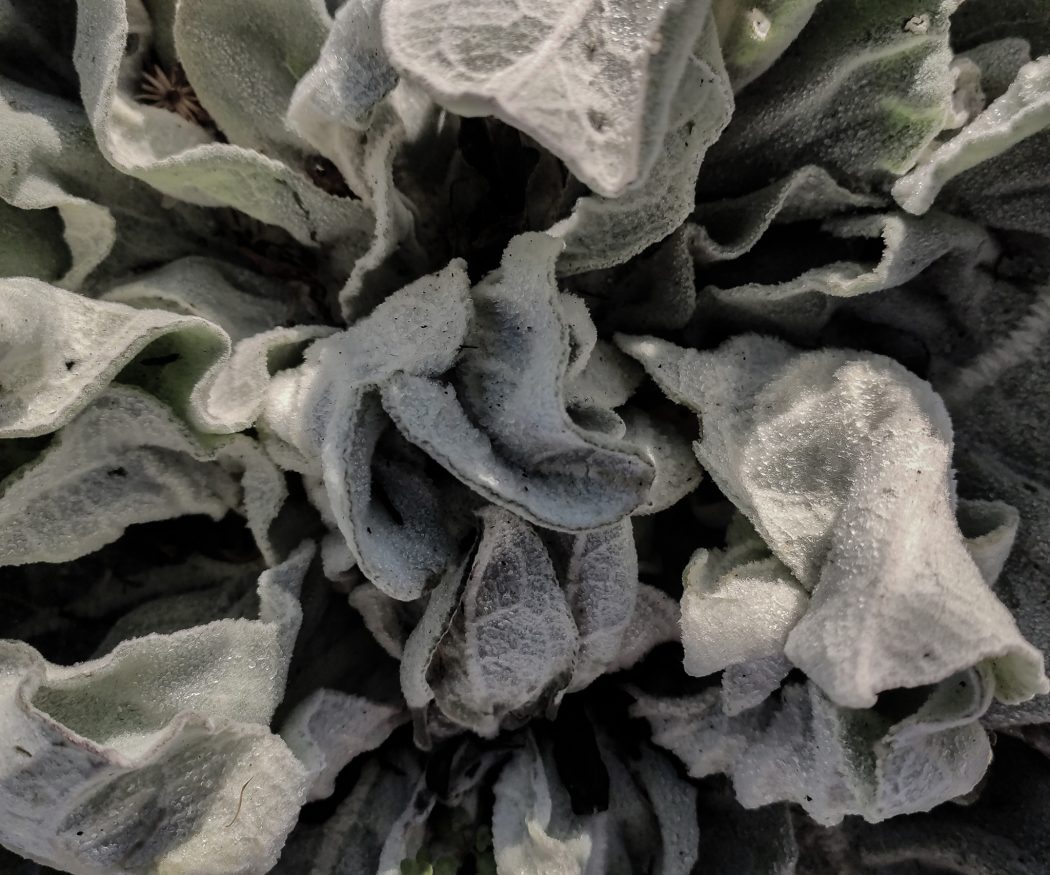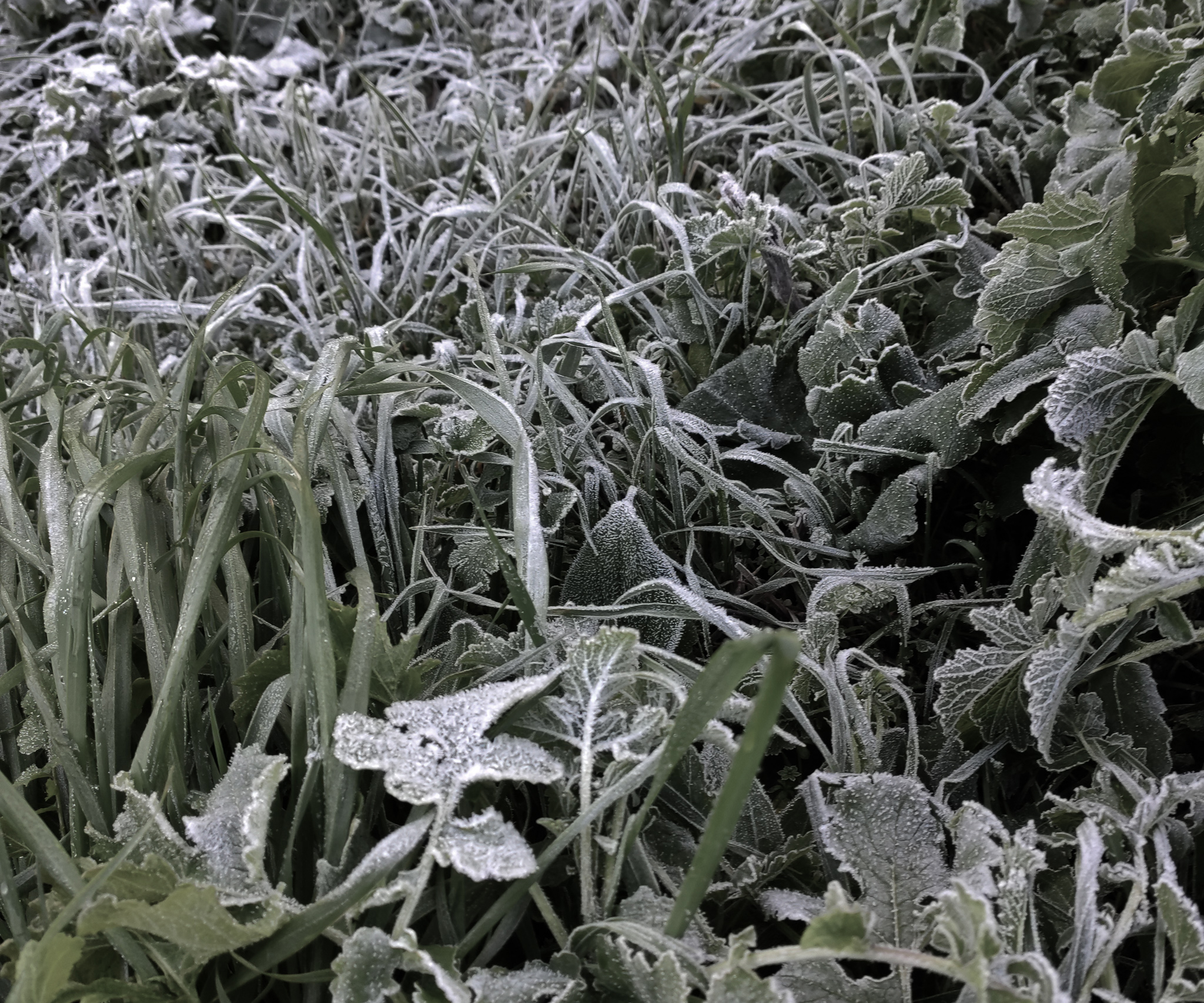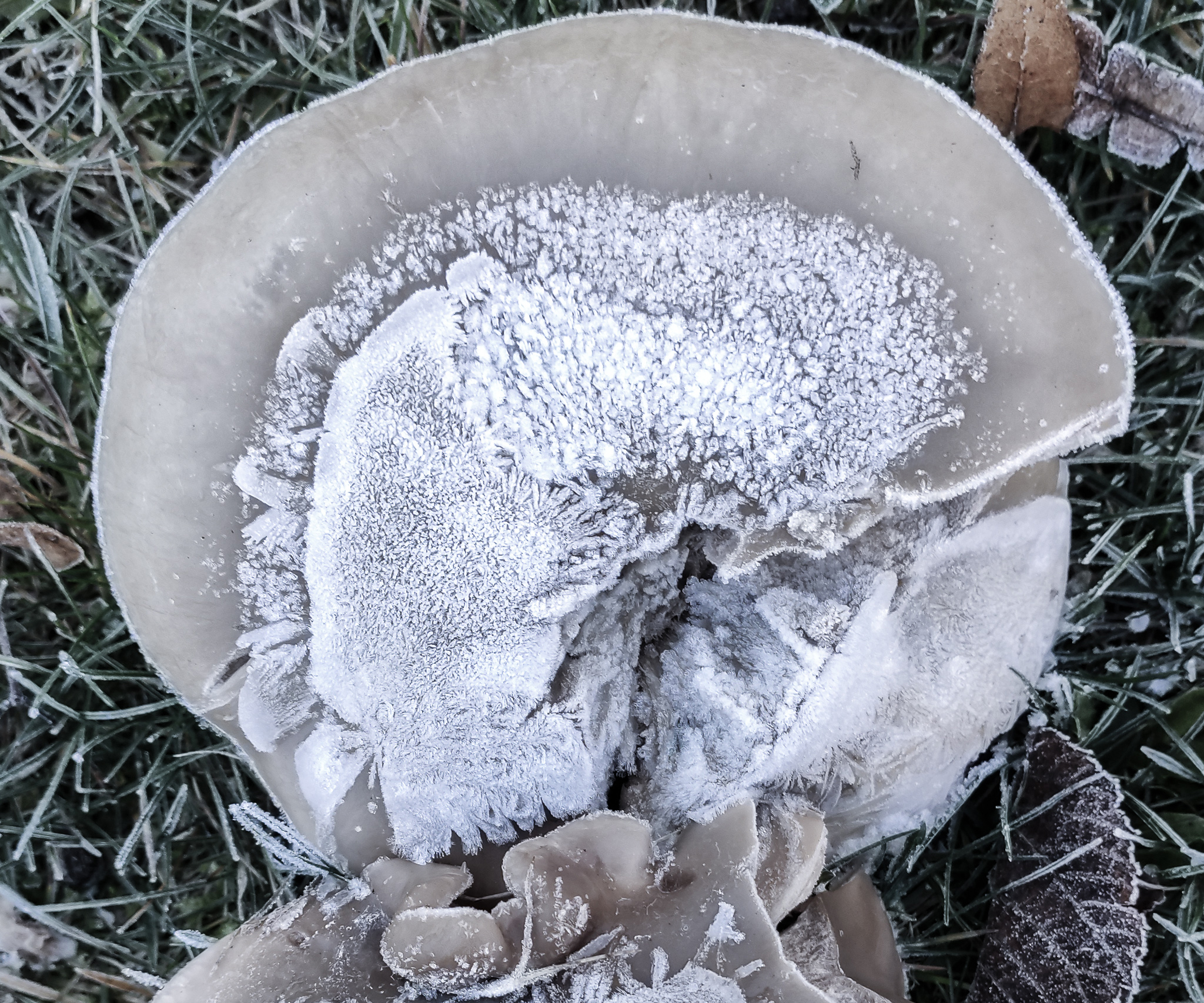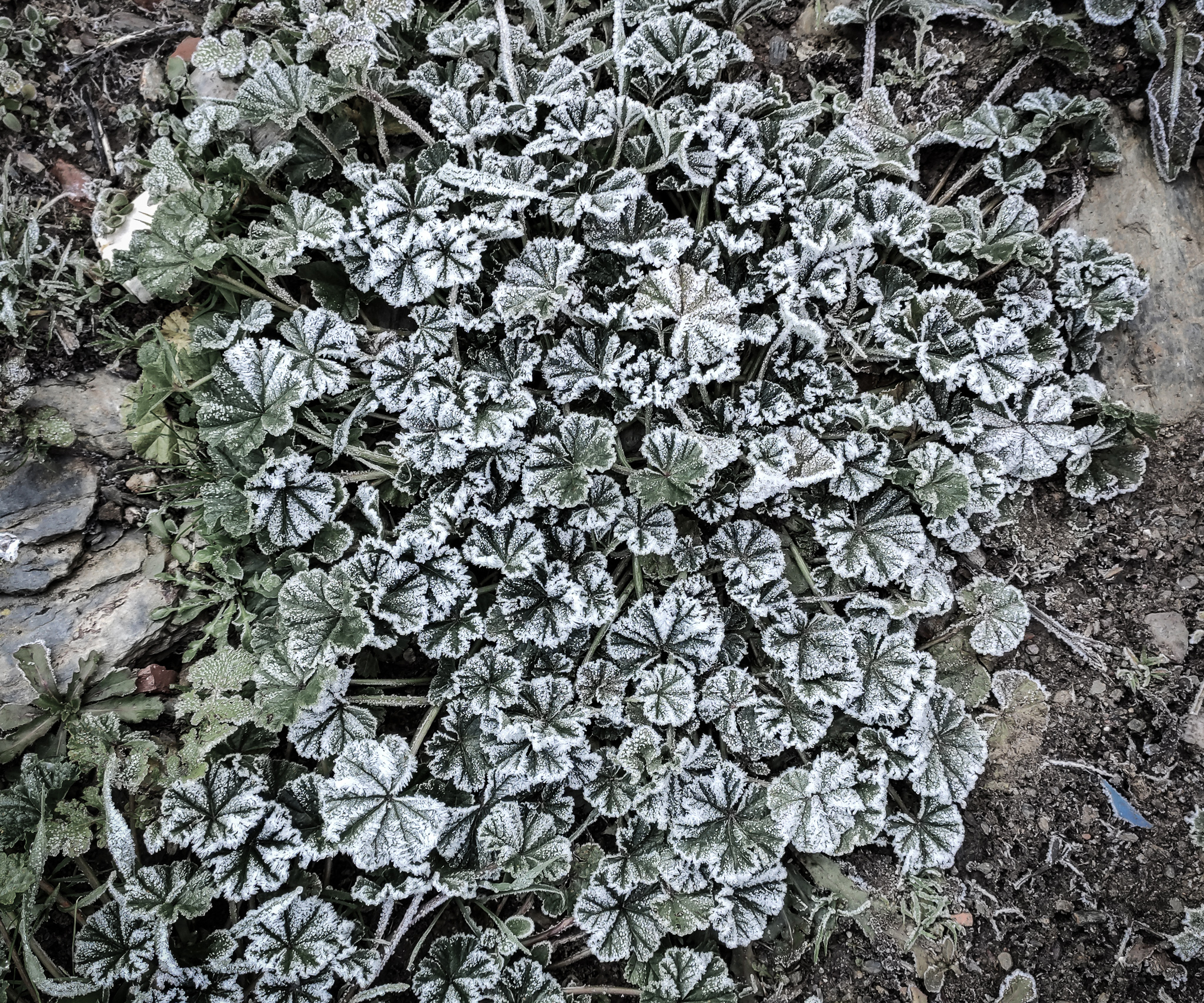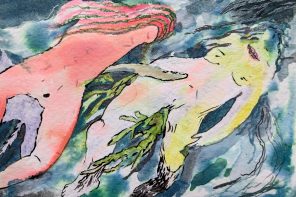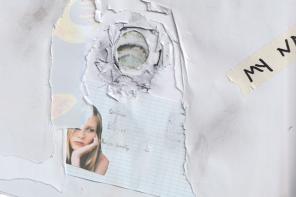At fifty-five, Sister Gertraude felt old. However, she still had a few decades to live. She felt it in her limbs, still agile in the dawn; in her hands, as willing to the hoe as to the quill; in God’s glance, which she knew was avoiding her.
She had beer and bread for breakfast. The services of Prima and Tercia seemed to last, as always, an eternity. She prayed and sang praises with an empty heart, her face a convincing mask of piety, and she listened to the words of holy men. She only wished to return to her garden, where she could shun the company of others and avoid hollow conversations of faith.
To her garden she finally arrived, and sighed with relief knowing she had a few hours to herself before the Ninth Hour struck and she would return to the others. The earth had hardened with winter, but the ice had melted and the profusion of herbs that had covered the garden had been cleared to make way for the fresh plants of spring.
Sexta Nona hour came and left. Sister Ingrid read fragments of Scivias while the others ate in silence, and then Gertraude returned to her garden, burying herself in the weeding.
The other sisters called her brusque, at least the younger ones. This usually happened before they discovered the exquisite lattice of her illustrations in botanical codices. It was what she did; painting herbs and flowers, describing their properties, preserving her knowledge. She was someone who dried medicinal plants to be able to use them years later—tasks for a small, unremarkable life.
Just like her, the entire convent of Rupertsberg lived in the shadow of Hildegard of Bingen. The Blessed, as she was called, had died shortly before Gertraude arrived, illiterate and terrified, and continued to reign within the walls of the place, over the garden, over the surrounding landscape. Monks and nobles alike came to the library to consult her works, which the sisters studied obsessively. Everyone tried to decipher the secret of her visions, read or listen to her notes, trying to make sense of writings in an invented language, the Lingua Ignota, as if by understanding it, they could touch divinity.
Gertraude considered them fools. She had lost faith more than thirty years ago, when Sister Consuelo collapsed in the middle of Symphonia harmonie celestium revelationum, during one of its antiphons. The harshest punishment of memory was how it snatched moments away, both the dearest and the most repudiated, until there was nothing left of them.
No one knew what Gertraude’s thoughts were when she worked in the garden, preparing plots to grow violet and lemon balm, or camomile and earthworm to cure afflictions of body and mind, which she would then harvest and copy their likeness in detail. Picture Gertraude on a clear afternoon, resting for a moment, leaning on her hoe as she wipes off a drop of sweat.
The lady approached her by surprise, her green dress becoming one with the tender green of the buds in the garden. Gertraude had seen her arrive, days before, received by the abbess for a retreat after a banal tragedy, which seemed like little more than an excuse. She was one of many noble ladies who took advantage of the fame and seclusion of the garden for a few days of tranquillity away from worldly scandals.
“Dandelion,” she heard her say. “For boils, ulcers, dental problems, itching, jaundice… Interesting herb to remove.”
“This plot is for dill,” Gertraude said. “Dandelion grows everywhere, but I need to take care of this one.”
“For good digestion and relief of gases,” recited the other. Gertraude finally turned to look at her.
“You have studied the works of our abbess,” she said, and she did the sign of the cross, looking up at the sky. “Thinking of joining the convent?”
The other laughed, and the sound caught Gertraude by surprise.
“Unfortunately, I’m not attracted to a life of seclusion. However, walking within these walls is good for my soul.”
Gertraude nodded. The stranger was her age, perhaps a few years younger. It was difficult to imagine the bustling lives of the people of the burgs, filled with vice. Her wool dress was a shade of green that she had never seen before. Her eyes were also green, glinting with an indecipherable expression.
It was Gertraude’s turn to recite, “the garden was Hildegard’s most beloved place. There she felt closer to the Lord than in her own visions.”
There was a silence that neither of them filled. Gertraude took her hoe and turned away.
“My daughter died earlier this year, giving birth,” said the stranger. Gertraude looked back.
“She should not have married,” she continued. She was sickly, she had narrow hips. I told her to join a convent, but who can convince a young woman? My husband insisted, too. He wed her to a merchant.”
“Now she is in the glory of the Lord,” said Gertraude, ashamed of her own words.
The other shrugged.
“She had her years of happiness on earth. Now, there is nothing left of her but a widower who won’t wait until her side of the bed cools down to remarry, a father who only saw her as an investment, and a mother who wishes she could not see and understand things that are wrong.”
“The Lord giveth, the Lord taketh away,” answered the nun.
The woman let a faint smile escape her lips.
“Friederike. I am from Ravensburg, though my heart is elsewhere. I’ll stay here until the sorrow becomes bearable. Or rather, until I can look my husband in the eye again.”
“Sister Gertraude. I’m in charge of the garden.”
“I know your name now, and your fame. That’s why I approached you. Your codices have a reputation in the convent. I wonder if they’ll ever be known outside it.”
“Everything I do is for the glory of God. I am but your servant,” she said, hoping her words would kill Friederike’s interest in this conversation.
“Drawing flowers is your way of praising the Lord?”
“Why not?” She answered, half-heartedly. “The holy lives outside the walls of the convent as well.”
Friederike looked at her, thoughtful, again her expression enigmatic.
“I’m leaving. Vespers are approaching, and I must meditate.”
Gertraude nodded wordlessly and watched the stranger enter the convent. For a moment, she felt very small.
She let her gaze be lost, for a few moments, on the surrounding landscape furrowed with paths like pale veins. Vespers came and went, and before going to sleep she took time to complete a few paragraphs for the chapter on St. John’s Wort in her codex. She slept in her cell, trying not to dream.
Her encounter with the lady would have been forgotten, or simply relegated to the corner of her tidy mind where she kept information about uninteresting plants. However, she returned the following afternoon. Gertraude told Friederike about the properties of mint and other Moorish spices grown in the south. The nun ended the day with her hands dirty. She attended the services and took her refection in a silence imperceptibly thicker, more guarded than other days.
Hortus conclusus. That was the name of Hildegard’s favorite garden in the convent. There she had cultivated her most precious, miraculous plants. Gertraude and Friederike began to meet there by chance, or in the cloister, and wove tangles of conversation about music, herbs, and beasts.
Weeks later, Gertraude met Friederike there.
“What are you doing here?” Asked the noblewoman. Darkness had already begun to flood the garden, shrouding the plants in blackness.
“I’m going to the library. I want to write a section on the properties of the opium poppy.”
“Can I see it?” You should sleep, thought Gertraude.
“Of course,” she answered instead, and she felt dragged like a leaf in the stream.
They walked, and their footsteps echoed through the stone floors. They sat together on the bench, and Gertraude drew her codex from one of the shelves. It was a volume of parchment, sewn together and bound with leather. It was not the most valuable manuscript – in that library it was hardly worth a look. However, her illustrations were particularly accurate and vivid.
“With this work I have ruined my eyesight,” said Gertraude, with a weak attempt at humour.
“It is admirable,” replied Friederike. “In Ravensburg we have some volumes, but nothing like this, nor like this library.”
She stood up with a candle and examined some of the books. One of them rested on the table, curiously small among the enormous books that surrounded it. She leaned over the words.
“What is this? Is it…?”
“Lingua Ignota,” Gertraude completed the sentence. “One of the monks from the monastery of Meninghard is here to try to decipher it.
Friederike raised a hand to touch the letters, with reverence, with fear.
“Do you think it is really the tongue of angels? Do you think it contains the silent music she received directly from God?”
Friederike seemed scared. Gertraude looked at her and said nothing, but she had to make an effort not to shake her head. She stood up and approached her, and pointed to one of the symbols.
“I can tell you this is an a, and this is a b. It is a code, I do not know if made by men or angels, but it is decipherable by men.”
There was silence. Gertraude stared at the unknown letters, until she noticed the touch of a hand against hers. The lady’s skin was soft, unlike hers calloused by work and writing, and the message was unmistakable. Gertraude took a step back, not looking away, and left, looking forward. That night, she could not escape her dreams.
She woke up in pain. The face of Consuelo had come back to her, as beautiful as it had been when the they were frightened girls sent to the convent, years and years ago. After the work, before Vespers, Gertraude’s steps unintentionally led her to the small cemetery of the convent.
Consuelo had been for her, at first, just another one of her sisters. They had done their novitiate together and had been ordained at the same time. Their affinity, however, was not a mere matter of age.
Time made them inseparable. They made a curious contrast. Gertraude was dry, like her manners. Consuelo, on the other hand, was the living depiction of what Hildegard had called the sanguine type. “Some women are by nature plump, and their flesh is soft and delectable… they are charming in the embrace of love.” Many years ago, Gertraude had read that passage aloud, and saw the other blushing, and suddenly realized that something strange had happened between them.
Sin was not unknown to them. It was not among any of the Benedictines, not after the death of Hildegard, of whom there had always been rumours of her relationship with Ricardis. It was something mentioned in grave tones, or in laughter, or in guilty whispers, but it was never spoken of out loud.
Gertraude and Consuelo had also talked about games they’d played in the forest with other children, in the age of innocence, before coming to the convent. After being ordained, those memories seemed from another life.
Their precious free time, which they spent together, was devoted to study. Any suspicion they might have aroused was eliminated with their diligence and their willingness to copy out manuscripts with neat calligraphy. They soon became known as the two devotees of the library. So it was, too, when they found what would become the second secret of their lives.
It was between Vespers and Completas, a rainy afternoon in which the sun drained quickly behind the window, when, rummaging through the palimpsests, they found some whose letters were shaped in the unmistakable calligraphy of the old abbess.
They would never know what accident of fate caused these notes to end in a pile of forgotten writings, but there it was: the litterae ignotae, written with their equivalents in the Latin alphabet, and a list of words that seemed endless to them.
They hid the scrolls under their habits, and in the following months of cold and darkness they undertook the task of learning the language, letter by letter, word by word. O orzchis Ecclesia, armis divinis praecincta, et hyacinto ornata, tu es caldemia stigmatum loifolum et urbs scienciarum. O, o tu es etiam crizanta in alto sono, et es chorzta gemma.
They did not mention it, but both realized the gibberish nature of the abbess’ language. It was not the language of angels, as it was rumored that Hildegard spoke, nor a perfect language, but simply a human code of letters and transposed words. However, they used it to talk to each other. Tu es chorzta gemma, they whispered to each other. You’re a shining jewel. And they laughed and laughed.
What the will alone could not do was achieved by a passage from the Scivias, read on a slow summer afternoon in which specks of dust danced between the columns of the cloister. Despite the heat, they were sitting too close together, aware of the nameless craving that surrounded them like a membrane and seemed to catch fire every time their hands touched. Consuelo read aloud. When I was 42 years and 7 months old, the skies opened and an igneous light of incredible brilliance came and permeated my brain and inflamed my entire heart and chest…” she whispered, and looked up to find Gertraude’s hand on her chest.
Their passion lasted for years, slowly consumated in secret encounters in the cloister, shortly afterwards in their respective cells. They began to sit apart in the library, to avoid arousing suspicions. In public only furtive glances and polite phrases were handed out; in private, their bodies gave to each other and their tongues spoke Lingua Ignota.
To the scarce vocabulary invented by the abbess they added their own words, names, verbs, until they created something capable of representing the world in daily conversation, even if bluntly and simply. They talked for hours about herbs, about music, about the nature of their sin. Gertraude used to feel guilty, even though she did not know why. What they did bore no resemblance to the act of copulation between man and woman, Consuelo insisted. Their actions were something new, an act of creation or praise. They were the lingua Ignota made flesh.
Gertraude almost believed her, and for a while they lived a sort of precarious and hidden happiness. All this ended the day when Consuelo fell while singing and was unable to get up. She said a few babbling words, in a language that neither her lover nor the other nuns could understand, a guttural and meaningless language, and collapsed again face down. Before the time it takes to say a Paternoster, she was gone.
She had been buried in the backyard for thirty-three years, along with all the other sisters who had come and gone. The convent, founded by Hildegard, was still new, and there were still patches of unmounted earth. Gertraude, without crying, saw her beloved being brought down and covered with earth. That day, she stopped asking God if her sin was forgiven.
Gertraude turned her gaze to the leaden sky, lost in her memories. She could not imagine Consuelo in hell. However, she did not picture her singing joyful songs for all eternity either. She had always been happy on earth, with the goats, with her cabbages, with her books. Her laughter did not resonate in an unimaginable paradise. She was lost forever.
The grass grew green on the place where Consuelo had been buried. How much would be left of her, there under the earth? What would have become of her hands, rough with labor but so tender with caresses? What about her mouth, her eyes? All was gone; her body nourished plants and insects, which in turn would be devoured by other beasts. A little green frog in the grass emitted its customary croaking and glanced at Gertraude with a single golden eye.
Thus it was that the revelation came to Gertraude; neither by a voice of thunder nor by twin tongues of fire coming down from heaven or up from abyss, but hidden in the greenery, disguised as her own thoughts. For a blessed moment she perceived the being, which was a wheel, and in it she saw the Cathars, erased as crops are when the land is salted; she saw the convent changing stone by stone, she saw Consuelo laughing and her laughter expanding into an infinite ocean.
And in the tapestry of being she was seen, not insignificant but spun with the rest in the dense warp of the world, a thread as indispensable as the Holy Roman Empire was Germanic; like the sun, the moon, and the stars. She saw the map of her body, not unlike that of a beast, and remote regions filled with strange men who did not know the Word. She understood that Consuelo had left her to change, just as she had changed, and that their love had been but a note in a sacred melody that could only be heard from Eternity.
Gertraude found herself on her knees clutching her rosary, crying the tears she had not shed decades before, salty like the sea she had never seen but of which she now knew an inalienable part.
That night she walked through the cloister and went out into the garden. In the moonless darkness everything was black, but she understood that the green had not disappeared but was hidden. She knocked on Friederike’s door, and in the seconds of silence that followed she could hear the beat of her own heart. The door was opened.
Friederike left at the end of the summer, unable to prolong her stay any longer, and assured the abbess that she would return at another time to continue purifying her soul. With Gertraude she shared feverish words the night before her departure, promises of something that would continue, secret, hidden in the fabric of the world.
Gertraude listened to her heart fluttering as the carriage disappearing along the green road. She prayed with her sisters at the designated times, fed and cared for herself, like any other day. She tended the garden and, after supper, went to the library like any other night with a handful of herbs, which she meticulously reproduced under the light of a candle.
She could not write letters to Friederike or receive them from her. Perhaps one day they would see each other again, perhaps in the next few years the lady would be widowed and decide to join a convent, perhaps she would choose to return. Would she remember her wherever she was, on a bed of silk sheets, as she had so often imagined her? Or would she find company with her husband, or elsewhere?
Gertraude had no control over the course of things. A mere woman, she knew that she must abandon herself to the designs of the divine.
However, that did not mean that her will did not exist, or that her voice would never be heard. She wet the quill, which had begun to blunt from tracing the convoluted stroke of a tendril, and returned to the first pages of her work. Written on parchment, which would last longer than papyrus, the rough leaves made of old rags that sometimes arrived in the valley carts.
Her codex would survive her, and with it her knowledge of ivy, blackberry, laurel, juniper, aloe, fig tree, and so many other plants to which she had dedicated her life as she had dedicated it to Sister Hildegard. She looked for the margins, adorned with flowers and plants, and in her design she looked for the holes.
There, where no one would look, it was there that she first wrote her first words not dictated by duty or necessity. For that she used the language of Hildegard, mixed with her own invented words, the same language she recited in silence behind her lips each time she thought of her beloved. She had taught Friederike as well, so that both could share their thoughts in a language that no one else spoke. O Vanix caldemia mea es, banziaz mea singen non posse…
Her words sprouted from the quill as if from her chest. In the margins, she wrote everything she could not say, things hidden away in her heart. When she finished, she waited for the ink to dry. Then, with her usual neatness, she blew to clean the parchment, by blind habit and only stopped for a moment to touch her words with the tenderness that others reserve for children and lovers.
After this, she vanished in the darkness of the cloister. It is not known what became of her life in the following years, whether the future brought her the longed-for meeting with Friederike, whether a tragic incident ended her life as it had Consuelo’s, or whether fate brought her even stranger events. Her words lived, long after her life ended, and if they ever reached eyes other than hers, they speak something that for us will remain forever in the dark.
Words and images by Crab
Crab is a translator, cook, and writer based in Granada, Spain. They are interested in food and community activism. They have collaborated with COVEN BERLIN since 2013.

